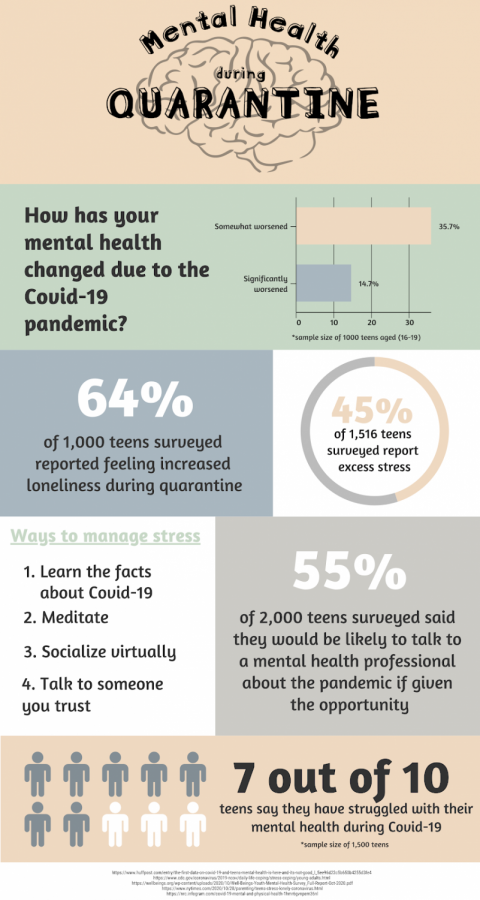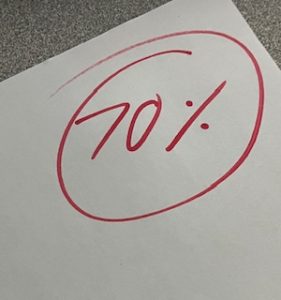How COVID-19 is Affecting Students’ Mental Health
January 21, 2021
Imagine this—everyone is quarantined, and you suffer from depression. You had an appointment with a therapist, and it was your top priority because you needed help.
But you can’t go because of the virus. COVID-19 and the isolation it has caused raises concerns about Americans’ mental health, which is now in the spotlight.
Being quarantined hasn’t affected everyone’s health in a positive way. Sophomore Skyler Sutton hated quarantine and the fact that leaving her house wasn’t an option either. The feeling of being alone and not interacting with friends has impacted her health.
“Quarantine has definitely affected my mental health,” Sutton said. “Not being able to socialize with my friends or just people in general. It’s hard not to be able to see my friends every day.”
The inability to socialize has also made some people feel isolated, leading to deteriorating mental health.
Senior Dillon O’Connor, who shares Sutton’s opinion about quarantine, took the experience as a time to learn about himself.
“I think not being able to socialize and have face-to-face contact with my peers has negatively affected my mental health,” O’Connor said. “But at the same time, quarantine has reminded me of how to be comfortable on my own, and it continues to teach me new things about myself every day.”
According to a study published in Emerging Infectious Diseases, a peer-reviewed journal, being quarantined can cause distress, leading to signs and symptoms of mental decline. The study evaluated the psychological effects of quarantine in the midst of the SARS outbreaks in Toronto, Canada. Out of 129 people who responded to an online survey, 28.9% of participants had symptoms of post-traumatic stress disorder (PTSD), and 31.2% had symptoms of depression. The study also concluded that longer durations of quarantine was correlated with a higher prevalence of PTSD symptoms.
Transitioning from traditional school to online learning gave little hope to people who were looking for the end to isolation. Sutton has been struggling to adjust to the new changes of online school since its start in September.
“Online school has also 100% affected my mental health in a negative way,” Sutton said. “Not being able to look forward to a Friday football game with my friends or a field hockey game with my team, not only that but the work is stressing me out because I don’t have teachers to make sure I stay on task.”
Junior Jack Fink found the adjustment to be easier and less negative.
“I have played a lot of lacrosse with my team and just shooting on my own,” Fink said. “I also got a job in the middle of quarantine at Magnolia’s, so that has kept me busy, and it’s nice to have money now.”
While Fink has focused on sports and his new job, O’Connor has been coming up with different hobbies to keep himself entertained.
“To keep mentally healthy during quarantine, I have been practicing many different methods of meditation, in order to be mentally, and more importantly, spiritually stable,” O’Connor said.








